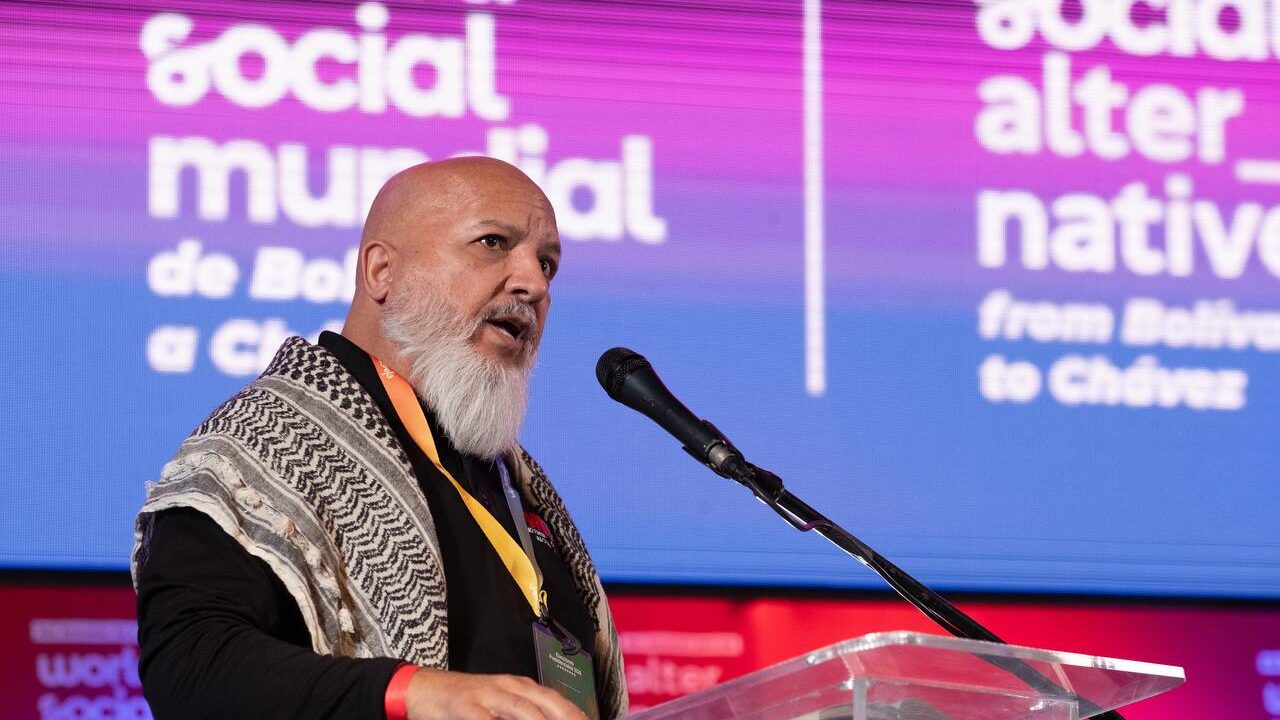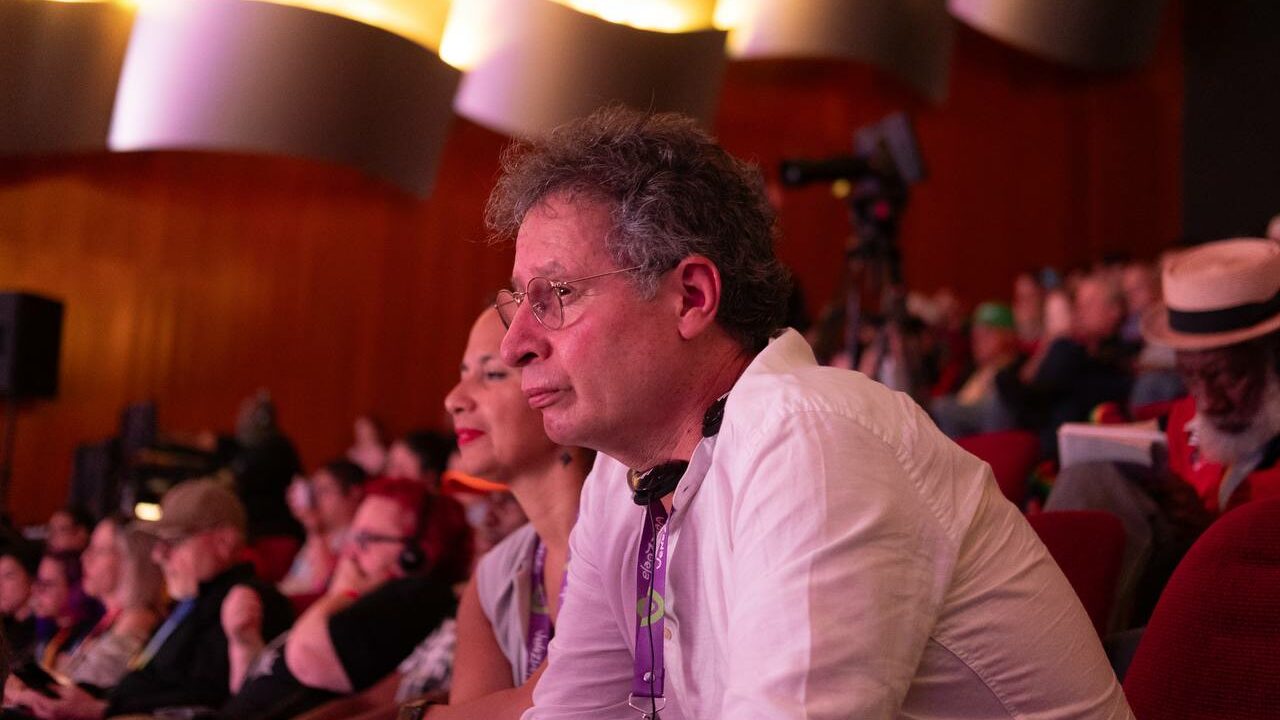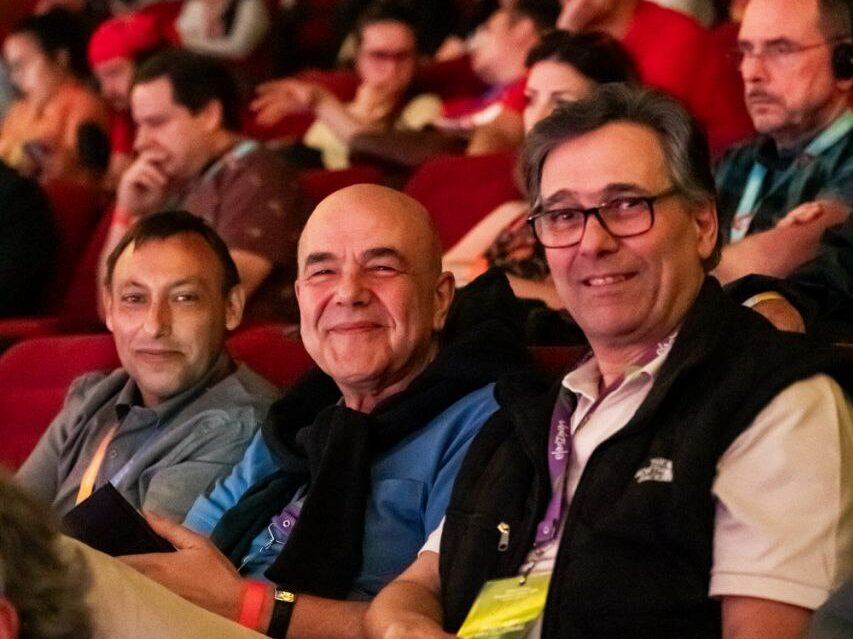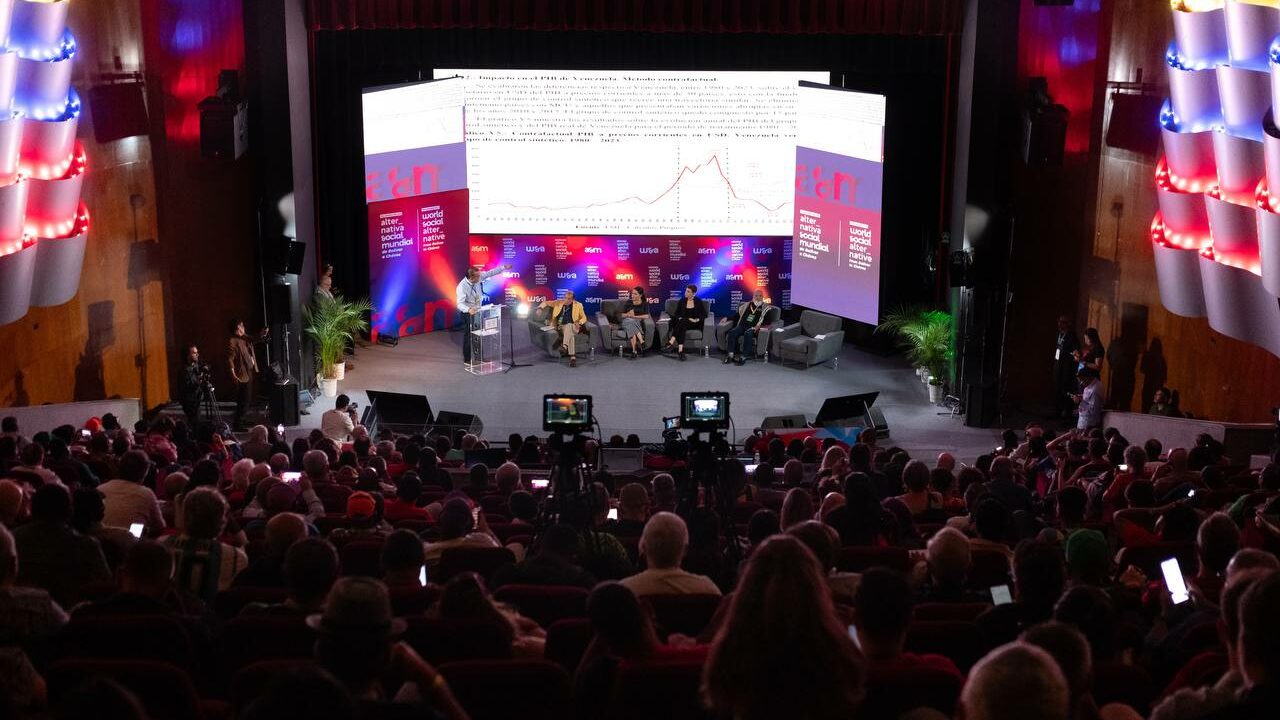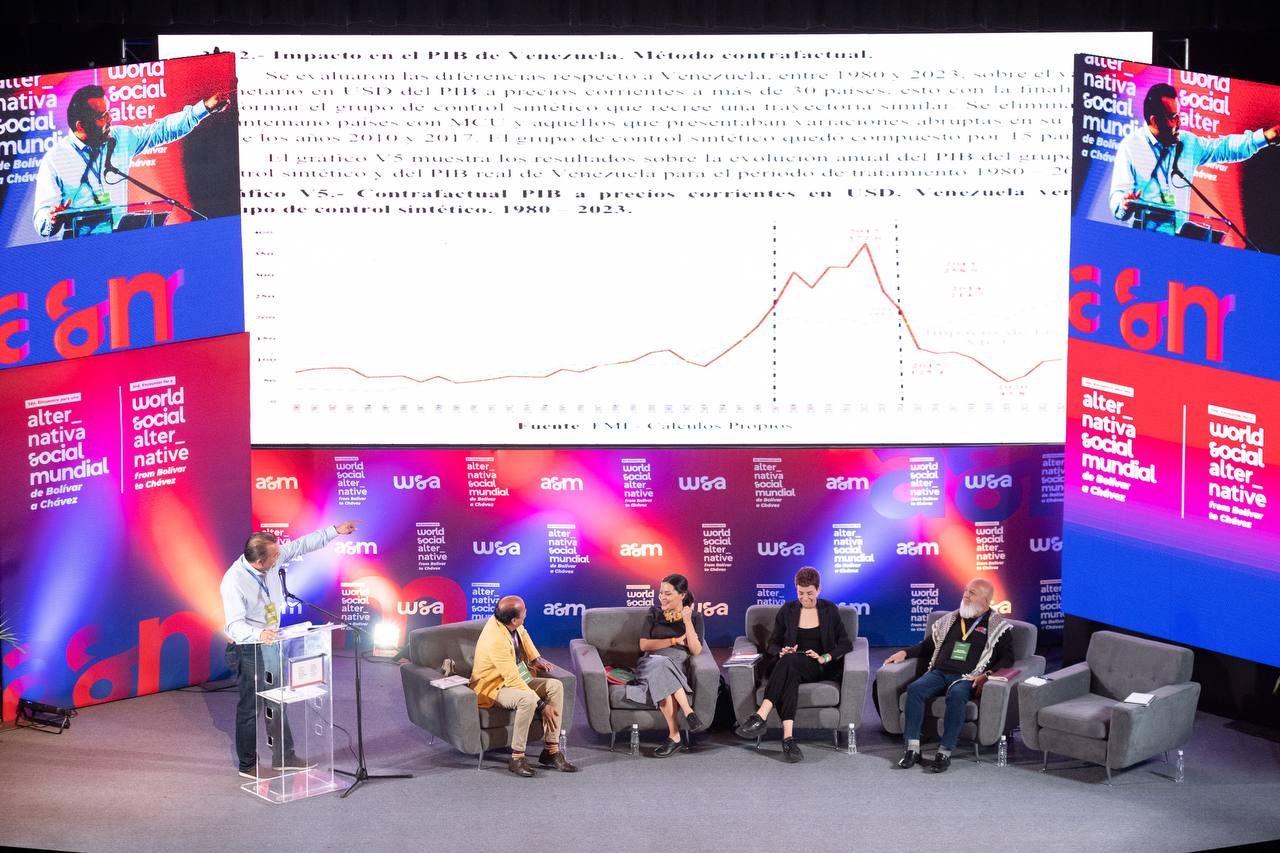Caracas, July 24, 2024.- On the second day of the 2nd Meeting for a World Social Alternative, organized by the Bolivarian Alliance for the Peoples of Our America – People’s Trade Treaty (ALBA-TCP) and the Simón Bolívar Institute (ISB) at the Bolivar Theater of Caracas, recognized experts participated on the 5th Panel “Alternative for economic justice,” contributing to reflection and consensus-building on this matter to consolidate a unified stance of social movements and progressive governments in the region, aimed at confronting and ultimately overcoming the imperialist hegemony of the global north.
The panel included Paula Giménez (News from Latin America and the Caribbean), Andreína Tarazón (Center for Advanced Studies on Development and Emerging Economies), Yosmer Arellán (Advisory Team of the ALBA-TCP Secretariat), Jorge Coronado Marroquín (Latin American Network for Economic and Social Justice), and Carlos Vega (Hostosiano National Independence Movement of Puerto Rico), moderated by Guillermo Barreto, an executive member of the ISB.
In a brief intervention, Jorge Arreaza, ALBA-TCP executive secretary, informed that it was President Nicolás Maduro who generated the idea to advance the initiative for a World Social Alternative and shared the greeting sent to the event by the Venezuelan leader: “The triumph of Venezuela will be the triumph of the unionist, independentist project, of a future for our beloved Homeland and for Great Homeland, Our America. It will be the victory of an alternative model to savage capitalism, neoliberalism, dependency, and destruction; the victory of an alternative model created by the intelligence and power of a people, that is Venezuela.”
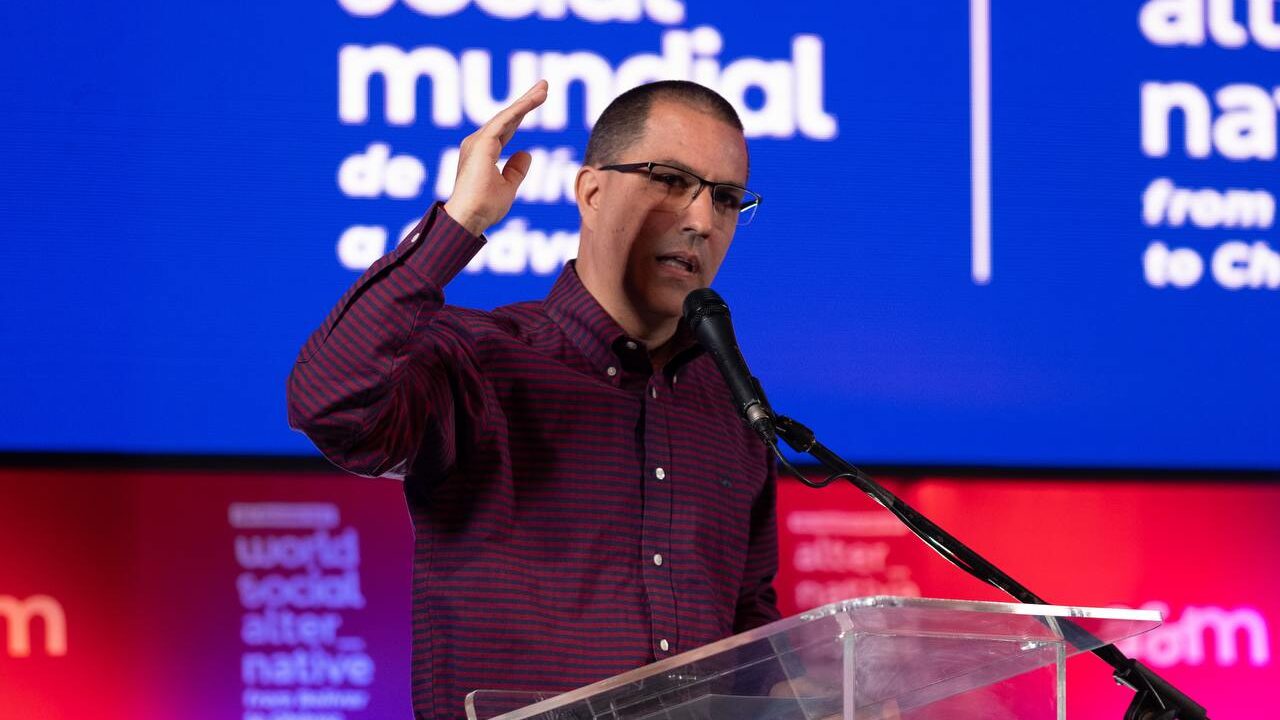
Paula Giménez from Argentina commented on her collaboration with a team in publishing a book that explains how the COVID-19 pandemic was managed by imperialism as a political event to send healthy humanity back to their homes and impose a new era of digitalization. They present this in their work as a new phase in the capitalist system, characterized by the advancement of digitalization, which brings greater voracity, exploitation, and worsening living conditions under a freedom appearance.
“We believe we are going to digital platforms to enjoy and entertain ourselves, thinking that consumption on social networks brings greater freedom when in reality it brings greater exploitation because it is not just about working hours; rather, the time spent on digital platforms is generating wealth for the new financial and technological aristocracy,” she explained, emphasizing that this represents an “expansion of levels of exploitation.”
She affirmed that there are alternatives to capitalism, and there are possibilities to propose another model that places the human being at the core. In this regard, the Bolivarian Revolution of Venezuela with 21st Century Socialism serves as a successful example.
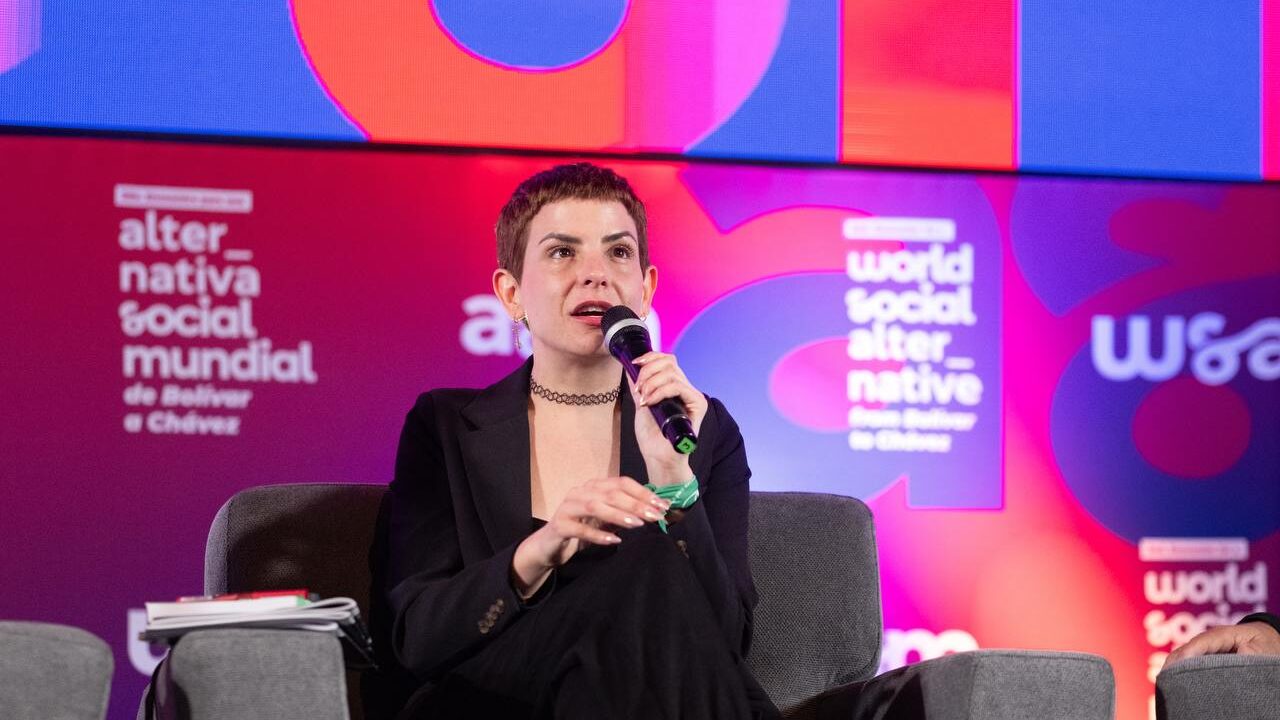
The unequal distribution of wealth in the world
Andreína Tarazón from Venezuela presented economic figures predicting that inequality will persist in a global context. “We do not have— for example—equal conditions in access to the distribution of global wealth, which is evident in access to technology that could relieve poverty and extreme poverty,” she stated, highlighting significant challenges for progressivism.
She affirmed that the right to development is a fundamental banner for Venezuela, which, as an energy power, faces the challenge of increasing its oil and gas production, conceived under the banner of environmental sustainability. She spoke about the strengthening of new power blocs, such as BRICS, which presents “a huge opportunity to influence decision-making and where the world is headed,” as well as China’s Belt and Road Initiative aimed at providing the world with new opportunities for commercial interconnection.
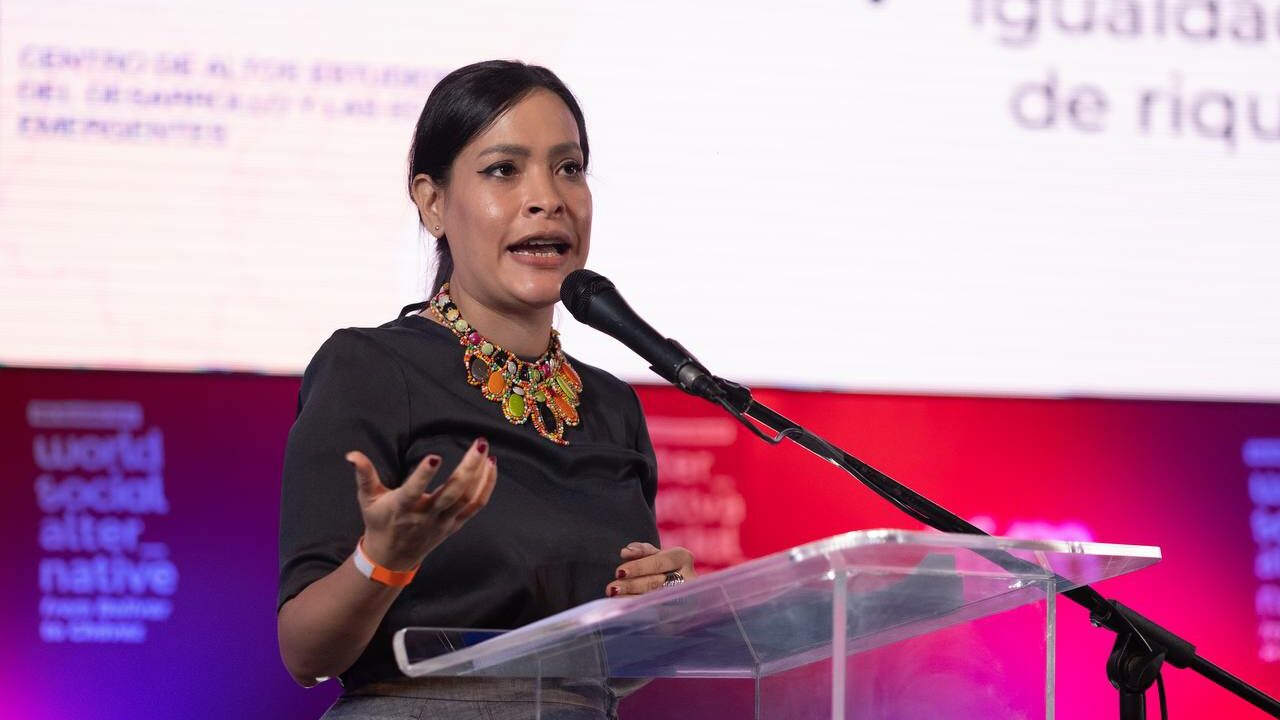
Yosmer Arellán, also an executive at the Central Bank of Venezuela, presented two proposals: to create the Center for Economic Thought of the World Social Alternative and to establish an economic fund to allocate resources.
He indicated that what is done with unilateral coercive measures, wrongly called sanctions, is a form of warfare through a suffocating, Machiavellian, and ruthless mechanism, using as weapons the hegemony of currency, trade, payment systems, financing, and creating dependency, such as with oil in the Venezuelan case. He demonstrated through slides the impact of these measures, showing a loss of $228,773 billion over 8.3 years. He celebrated that with the implementation of an alternative model, there is a real recovery of the economy, reflected in the lowest inflation rates in the last 20 years and sufficient supply from national production.
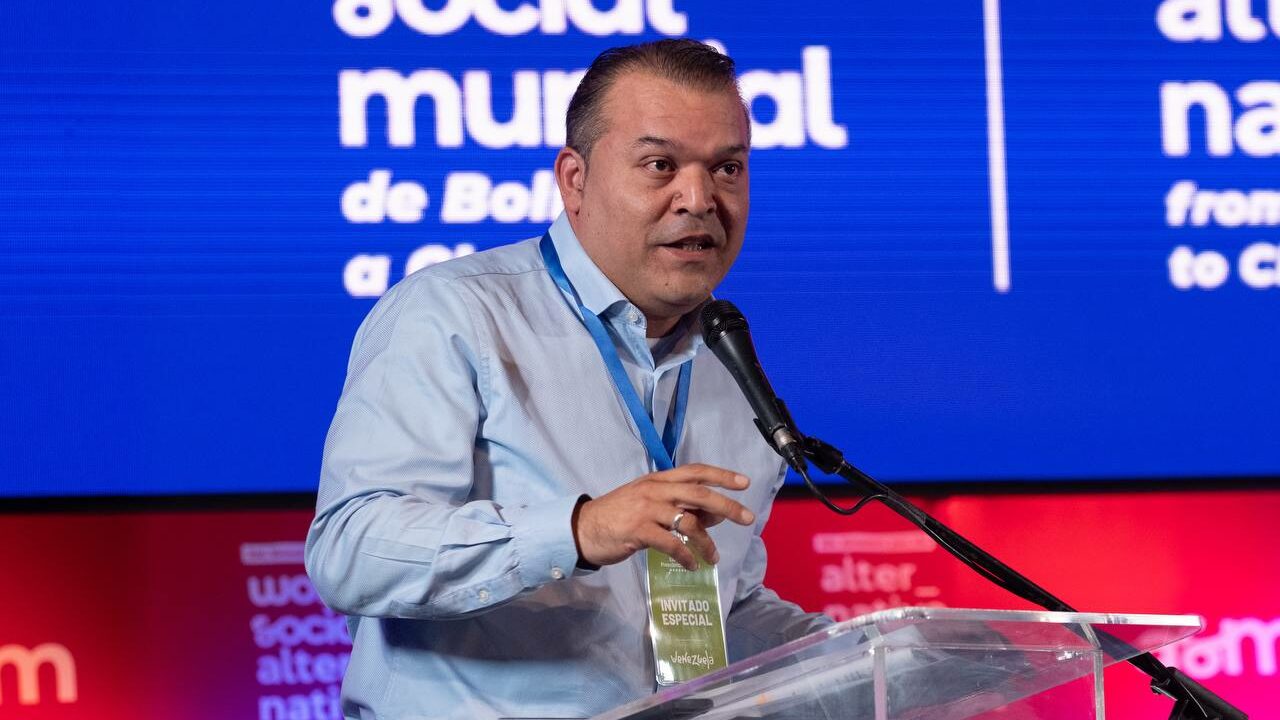
Jorge Coronado, a sociologist from Costa Rica specializing in Political Economy, emphasized that economic justice should be a central theme in the debate among the left and progressivism in the region. He explained that the imposed neoliberal system has dismantled national economies and “turned us into producers and exporters of agricultural commodities and raw materials to benefit large multinational corporations.” He also discussed tax fraud, which causes Latin American countries to lose $423 billion annually due to tax evasion, resulting in the continent remaining the most unequal in the world.
“Social movements are taking on the challenge of economic justice and social justice, and it is important to link what we do from social movements and alternative think tanks with the actions of progressive governments and the left. It is imperative that we develop a higher level of political dialogue in Latin America regarding proposals.” He also suggested placing the issue of wealth taxation on the discussion agenda for Latin America.
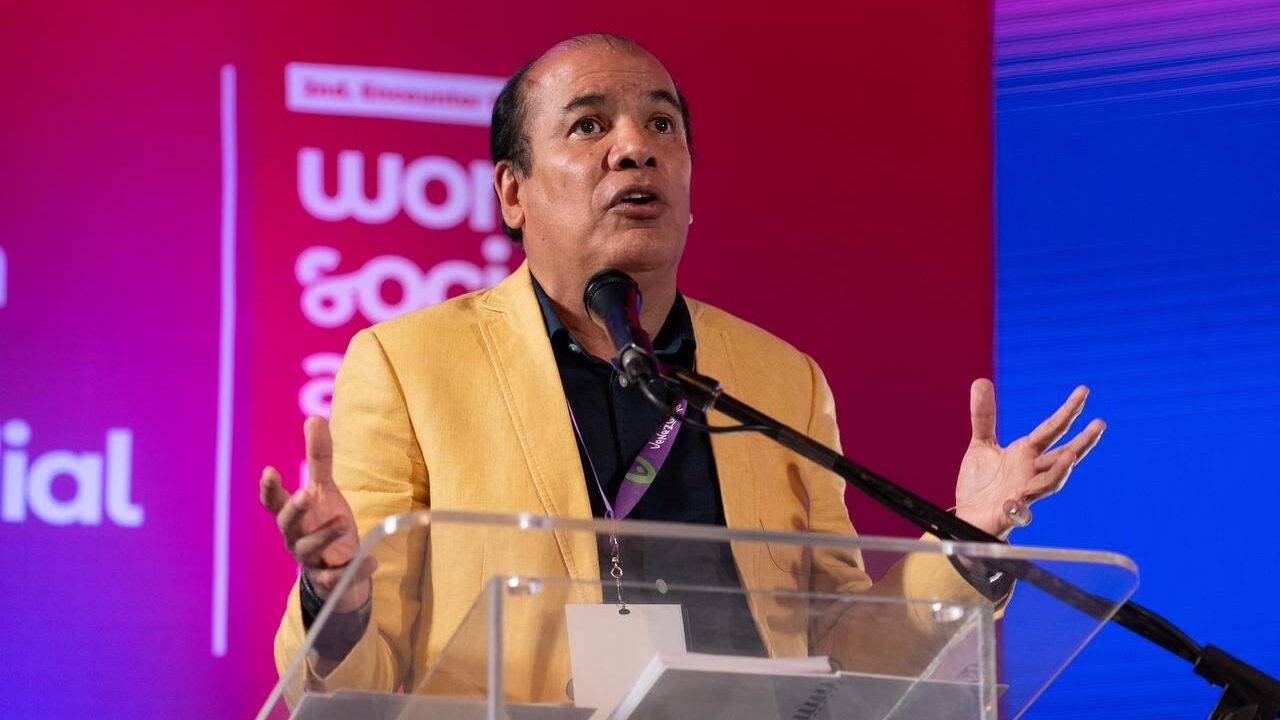
Carlos Vega stated that the failure of the capitalist economic model in his country is a reflection of the failure of the global capitalist model: “Puerto Rico declared bankruptcy in 2016; its external debt is unsustainable and cannot be paid.” He identified that it is the colonial government that has incurred these obligations, and in that year, former president of the United States, Barack Obama, established a Fiscal Control Board for the island, composed of seven people appointed by him. This board imposed brutal neoliberal austerity measures on the people, who suffer from privatized healthcare, efforts to eliminate public education, and have experienced a massive migration of five million compatriots. “Living in the belly of the beast, they are discriminated by the racist society” of the United States.
“There can be no peace without national sovereignty, and our country lacks that sovereignty to make its own decisions… The freedom of Puerto Rico must be a task for all Latin America. The U.S. extracts immense wealth from our archipelago that does not return to improve the quality of life for our compatriots,” he denounced.
